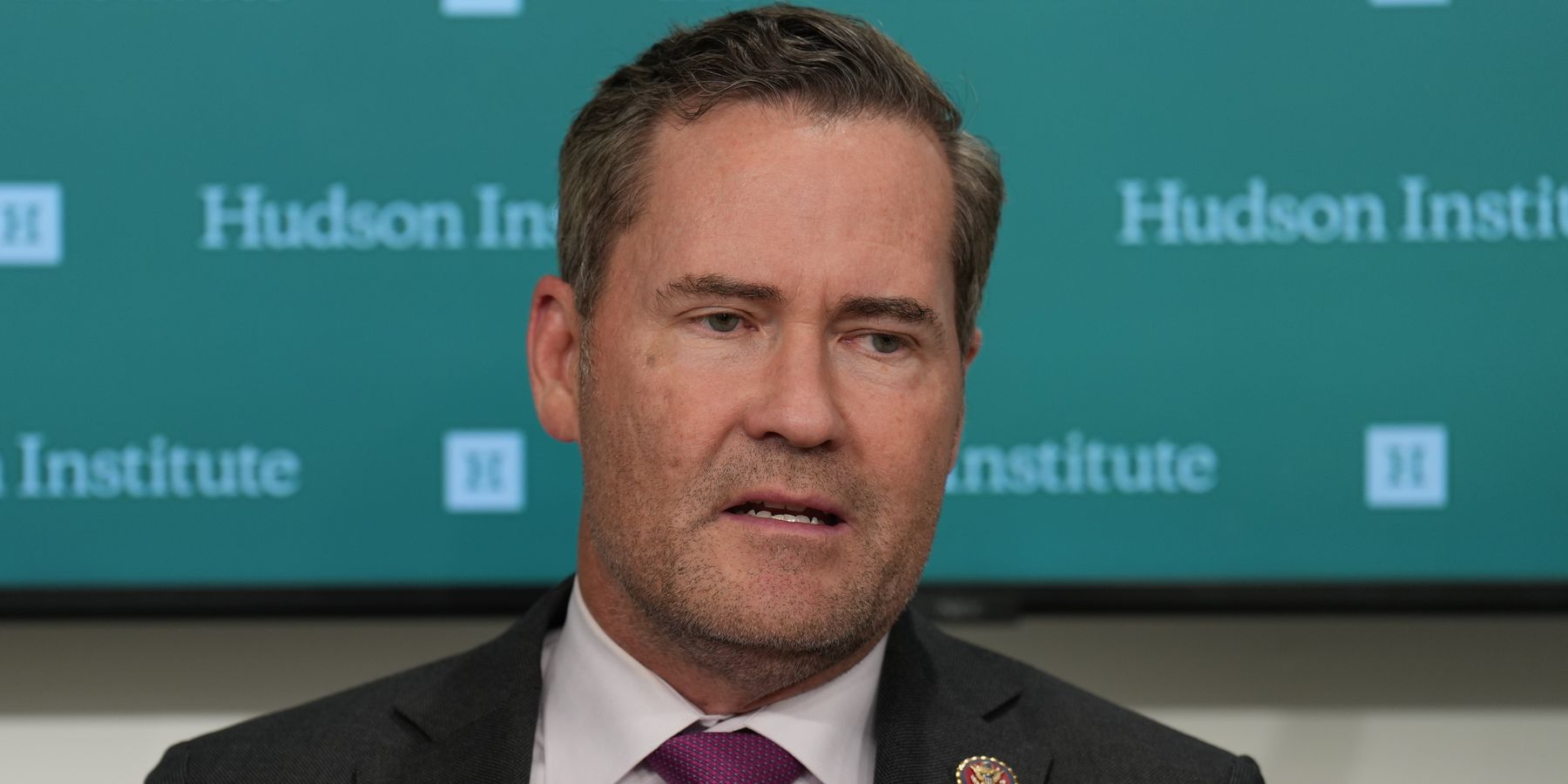Update 5/1, 3:30PM: President Donald Trump says he is nominating Mike Waltz, who is being taken out of his role as National Security Advisor, for U.S Ambassador to the UN. More on that from Axios.
Breaking news reports say Mike Waltz is out as National Security Council (NSC) advisor, as well as his colleague, principal deputy national security advisor Alex Wong.
The former congressman has been embroiled in scandal since assuming the post, most notably the “Signalgate” debacle, where he and other top officials discussed Yemen war plans in a group chat on messaging application Signal — which included the Atlantic’s Editor in Chief Jeffrey Goldberg.
The stormclouds have been building for some time: indeed, the Atlantic’s Isaac Stanley-Becker told Wolf Blitzer two days ago on CNN that Waltz was on "thin ice,” especially because of his role in “Signalgate.” Waltz had apparently added Goldberg to the chat in a phone mishap.
As the morning news broke across social media, word was that U.S. envoy Steve Witkoff would be first in line for Waltz's replacement.
Experts tell RS that the officials’ ouster, depending on their replacements, may provide opportunities for a more restrained foreign policy during Trump’s second round in the Oval Office.
“Waltz and Wong were among the more hawkish of Trump’s close advisors, especially on issues related to Iran and China, including U.S. policy toward Taiwan,” said Jennifer Kavanagh, Senior Fellow and Director of Military Analysis at Defense Priorities.
“At many points, both Waltz and Wong have seemed out of sync with President Trump, who very clearly wants to avoid a war with Iran and is seemingly less committed to defending Taiwan militarily than past presidents," she added. "While much depends on who takes their place, the removal of Waltz and Wong opens the door for replacements that share Trump’s preferences for military restraint and diplomacy.”
“Before he was cheerleading the unconstitutional use of the U.S. military, Waltz was one of the most anti-China members of Congress, asserting that the U.S. was already in a Cold War with Beijing,” Dr. Annelle Sheline, Research Fellow in the Middle East program at the Quincy Institute for Responsible Statecraft, told Responsible Statecraft.
“His positions generally reflected a neoconservative approach to foreign policy; his selection as NatSec Advisor had raised questions about how he would gel with a president who had pledged to keep the U.S. out of unnecessary wars. His ouster may signal an opportunity for more deal-making and less saber rattling,” Sheline added.
"Now that Waltz is on the way out, it is possible that the Trump administration might back away from some of the most extreme demands that they have been making in the in direct talks with Iran," writer Dan Larison offered. "However, it is unlikely that there will be any major policy shifts.Trump’s remaining national security team is still very hawkish, as shown by the Secretary of Defense Pete Hegseth’s threats against Iran this week."
Replacements pending, it seems Waltz and Wong may not be the only Trump administration officials on the chopping block: as Fox Senior White House Correspondent Jacqui Heinrich wrote on X, “additional names [are] likely to come.”
Larison called the Witkoff prospect "a very odd choice in some respects because of Witkoff’s lack of foreign policy and government experience," he said.
"Appointing Witkoff could be a sign that the president is pulling back from the more aggressive foreign policy positions that he took in the first three months, or it could simply mean that the president wants to fill the position with one of his friends."
- Caldwell, 2 others sacked at DoD fight back in fiery joint statement ›
- With Rubio, Waltz, a harder line on Latin America looms ›
- Former Israeli official on NSC let go in weekend purge | Responsible Statecraft ›
- Another one bites the dust: Iran hawks disappearing from admin | Responsible Statecraft ›
















